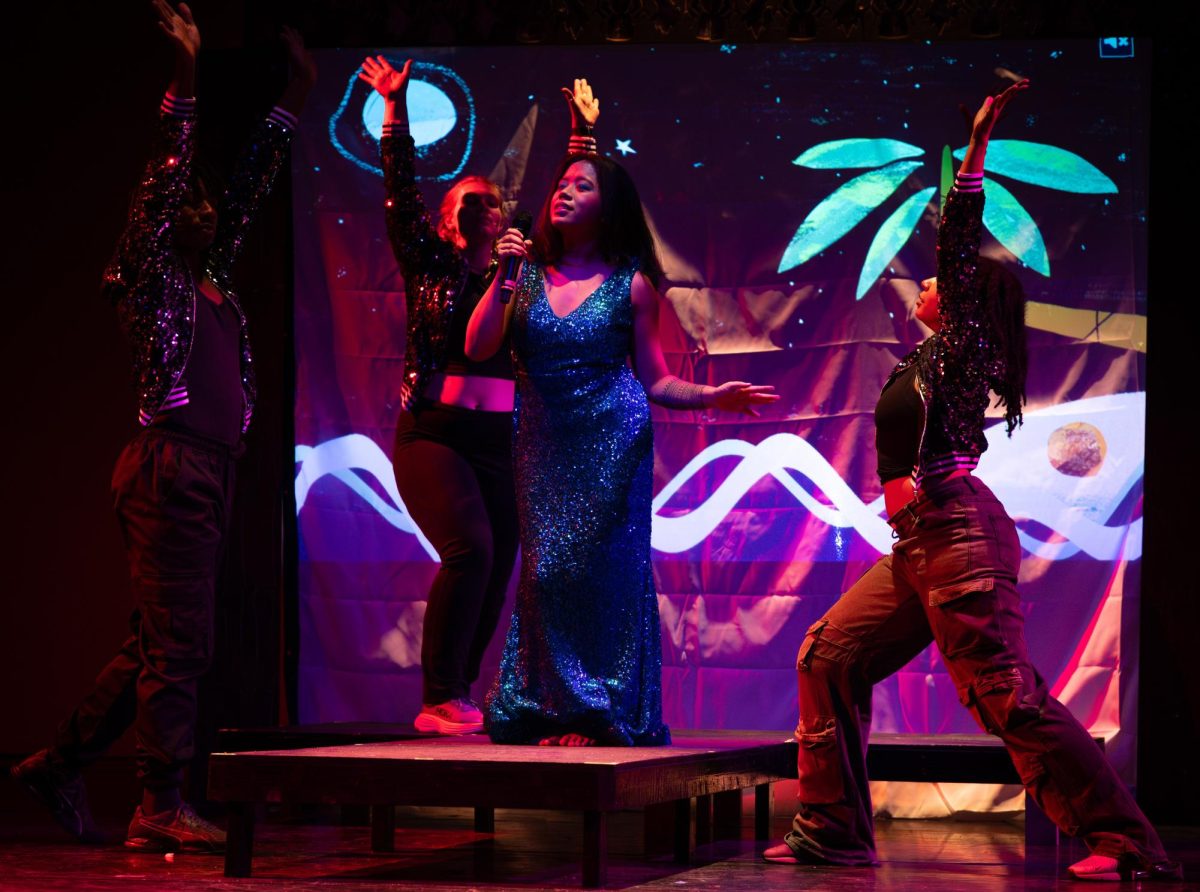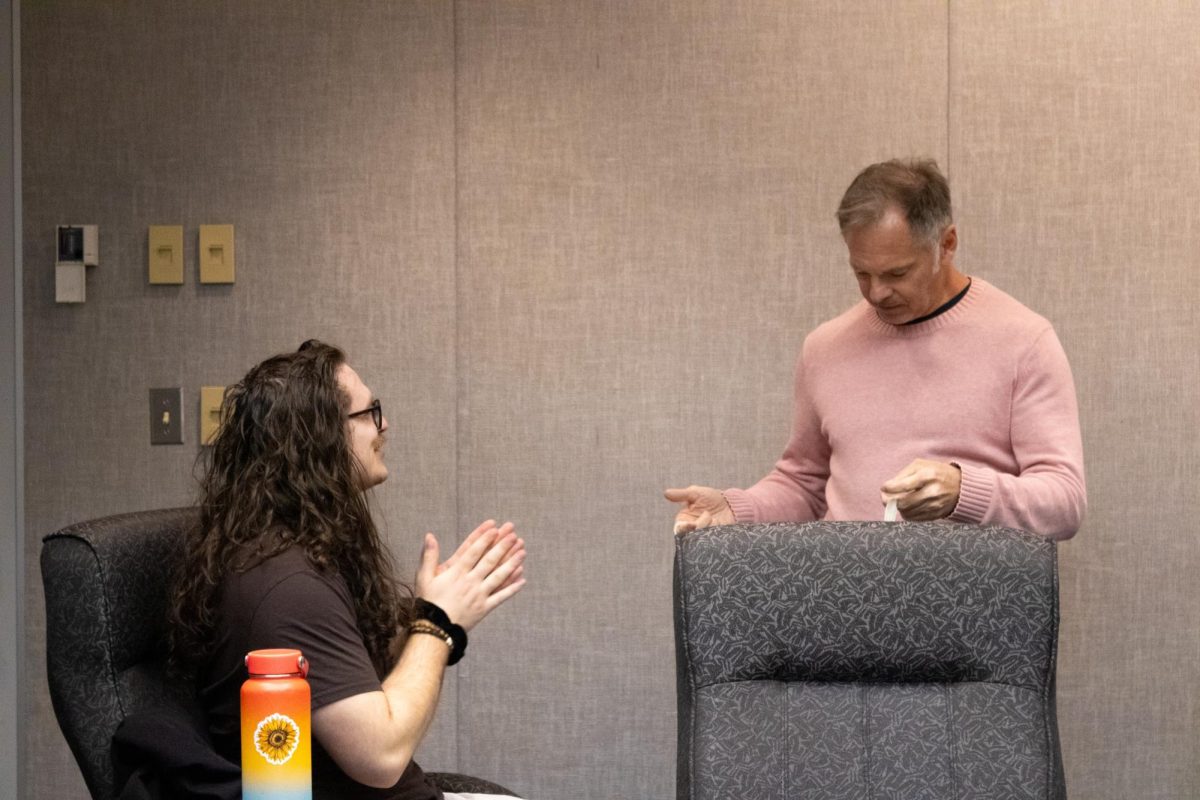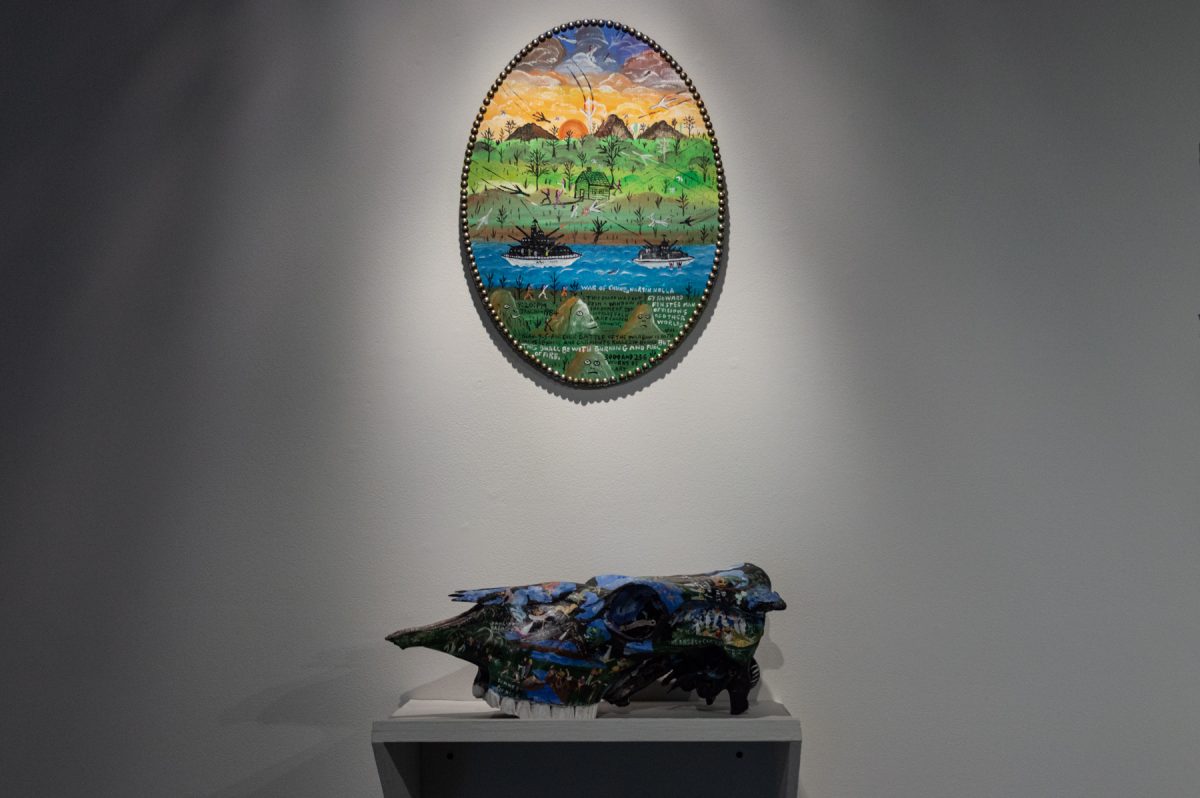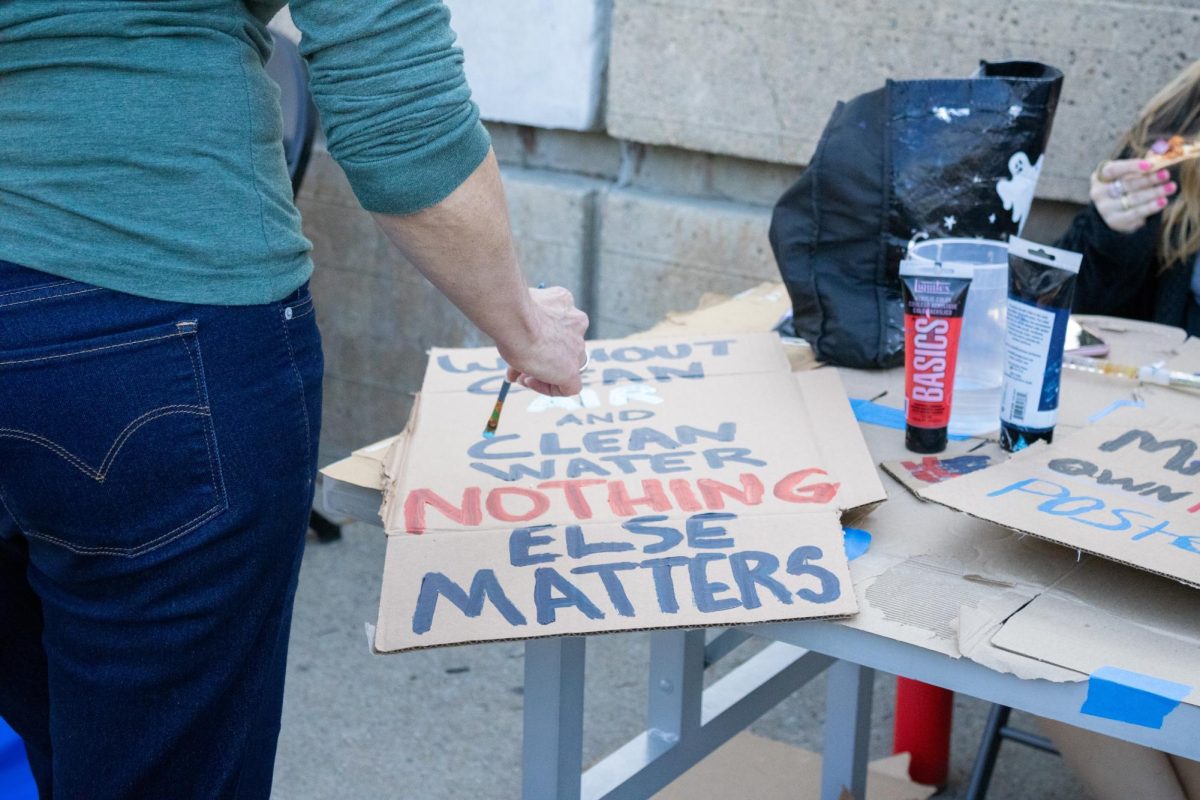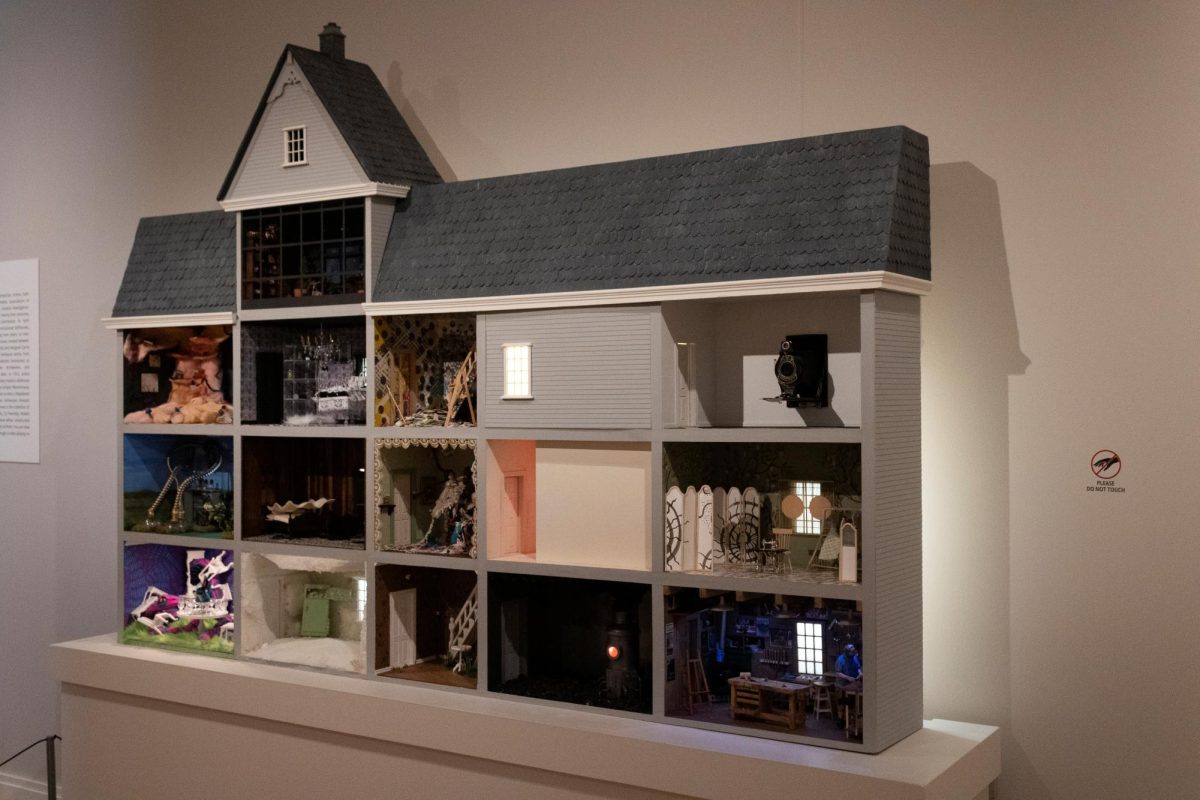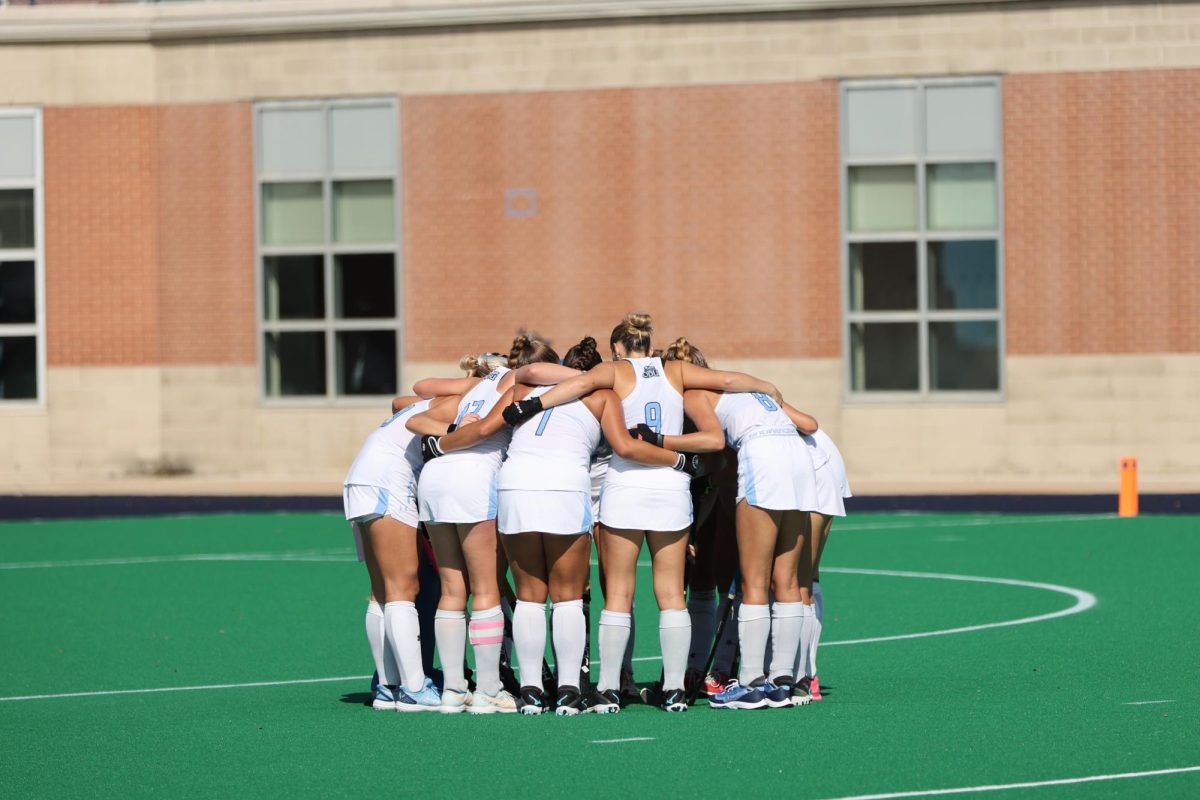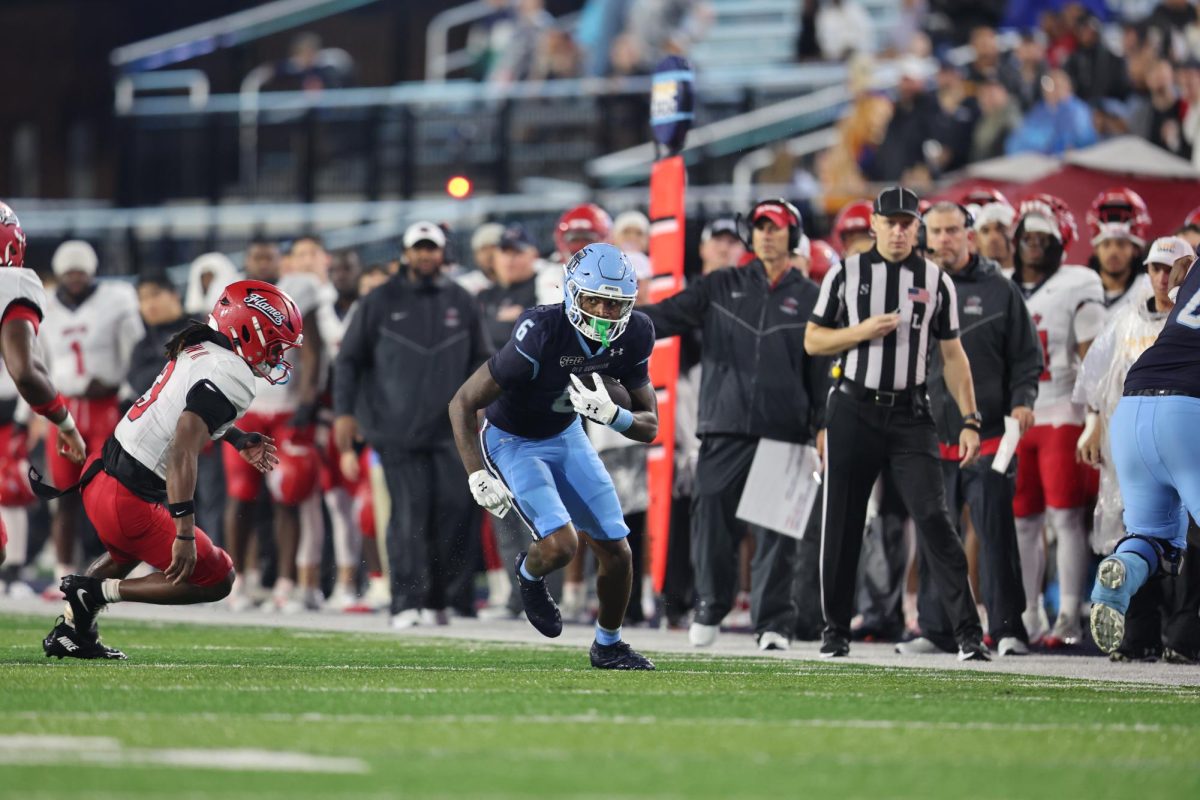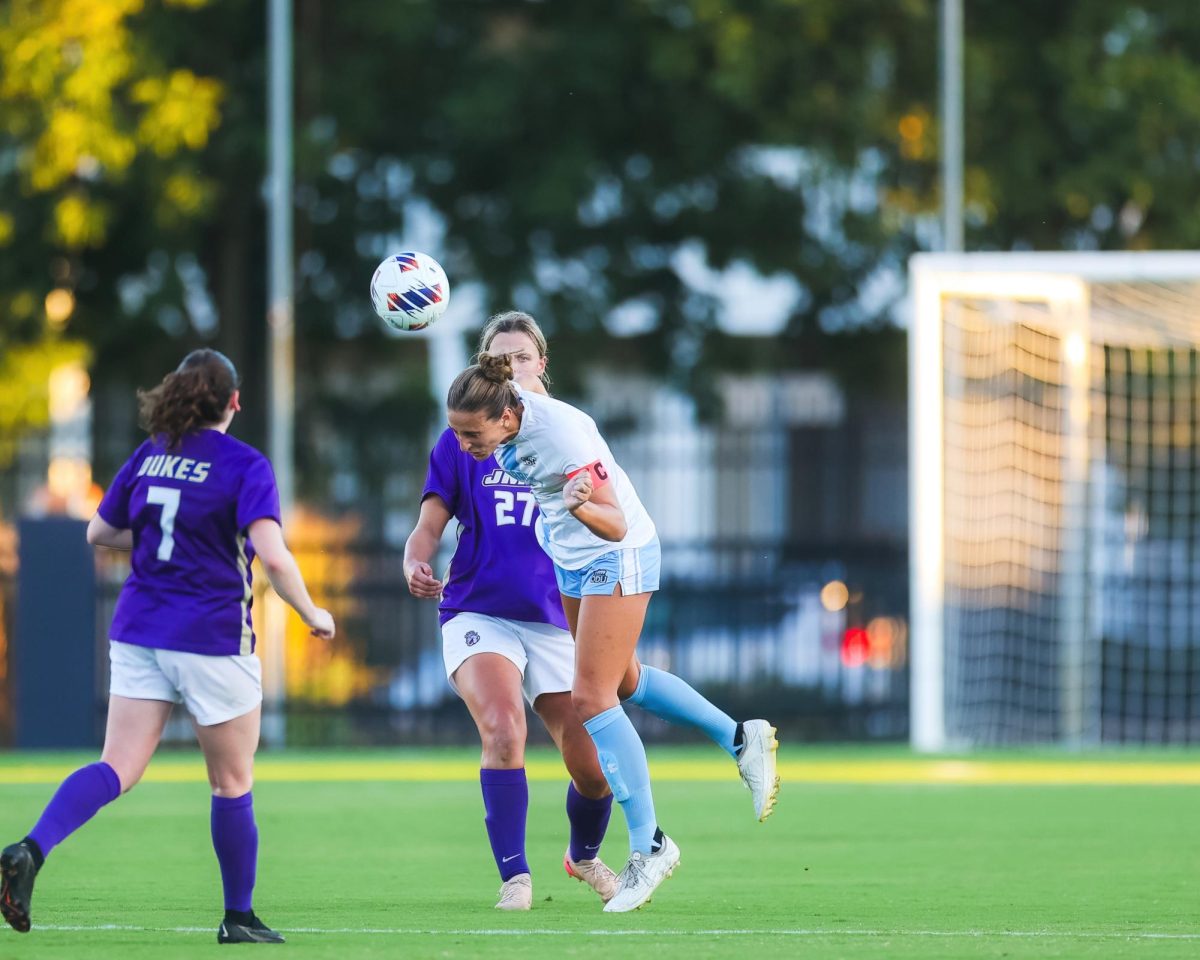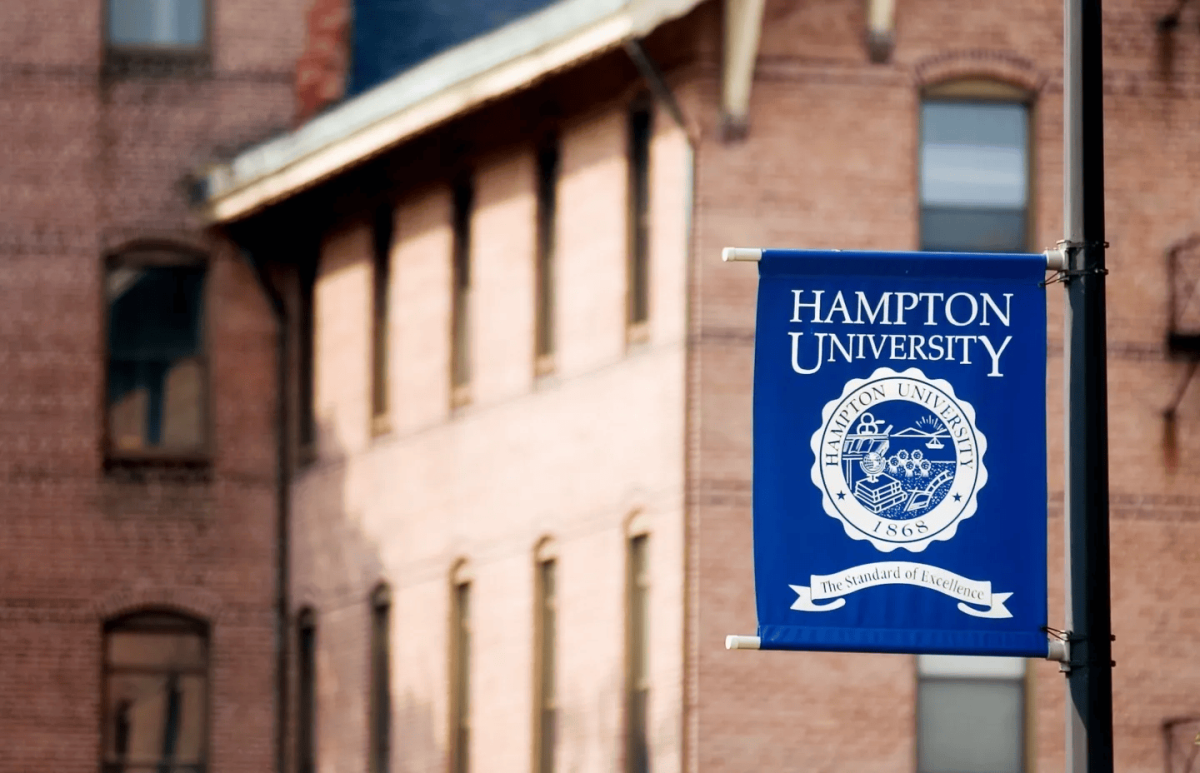“The Great Filipino-American Aswang Pageant” kicked off opening night at the University Theatre. The play was shown early in honor of the Literary Festival, an annual event that ODU puts on to highlight campus artists and writers. This was one of their first times showing a play during festival week, as an attempt to change the status quo of mainly highlighting writers.
The pageant follows the top five nurses of the American Social Welfare and Nursing Groups’ annual pageant– except, it’s no ordinary pageant. Each contestant is an “Aswang,” a shape-shifting monster in Filipino folklore.
The line-up consists of Scotty Sigbin (Ryan J. Flores), a goat-like figure who feeds on human flesh; Kory Kulum (Kai Alfonso), a magician with prominent horns; Ulanka Ungo (Hannah Bondoc), a zombie who feeds on humans; Marisol Magindara (Maya Pagtakhan), a siren with hypnotic charm; and Blessica Batibat (Komal Smruti), a tree spirit who infiltrates nightmares.
The pageant is hosted by Tomas Tikbalang (Raymond Dimaano) and Blanche (Anna Sosa), who are former Aswang pageant winners, now guiding the show forward, dealing with fellow Aswang antics along the way.
As each contestant shows off their eclectic talents and interview quips as an Aswang, reporter Zarina Gonzales (Angelina Paquin) investigates the pageant, learning about her own identity and culture along the way.
In addition to the entertaining hijinks of the contestants, something that shines through the play is their meticulous costumes and make-up. Each contestant is adorned in a bright and colorful suit or dress, along with make-up that represents their special Aswang abilities. The suits and dresses are so beautiful and traditional, it’s easy to forget as the viewer that it’s a play, not an actual pageant.
Though at face value this production is a slapstick comedy, the play explores the importance and prominence of Filipino culture, history, and identity.
“The story has this journey of self-discovery and each of the characters have their own… I think if people can connect to that and see where they are in their own path, or if they can identify with something in the show, then they can walk away a little more reflective,” said director Rachel Crist Lizan.
Each character identifying as a different type of Aswang shows the importance of oral history in Filipino culture, and how tradition continues despite the influences of colonization.
By tying in the fact that each contestant is a nurse, it touches on the prominence and intense impact that Filipino nurses have in both the Philippines and the United States, making an incontestable impact on the healthcare workforce as a whole.
Additionally, as the play is set as a beauty pageant, they brilliantly showcase and critique the concept of beauty standards as a whole and its prevalence in the Philippines.
“I think a lot of people can be caught up on if you’re a first generation, or if you were born in America, or if you were born [in the Philippines], do you know the language, and, I don’t know, I feel like sometimes those titles can be a little degrading,” said Sofia Valerio, who played Spice, with hopes of the play encouraging people to be less judgemental of others’ identities.
The play expertly investigates what it means to be Filipino-American in a world where it’s hard to feel a complete sense of belonging, and each character, in their own comedic way, shows that being your true, authentic, imperfect self is the way to combat this.
“I’m Filipino-American, and I hope that people take away that you don’t have to fit into a certain mold in order to be considered Filipino. And also, something I want people to take away is that everybody has a story to tell, and if they watch this show and they’re inspired to tell their own stories, that’s fantastic, that would be the best possible outcome,” said Marianne Chan, the Literary Festival’s co-director.
Through mixed mediums, intricate costumes and make-up, hilarious witticism, and a program that looks like an actual newspaper, “The Great Filipino-American Aswang Pageant” pulls viewers in and never lets them go.
This production, put on by a partnership of ODURep and ROŪGE Theatre, will be showing Oct. 16-18 at 7:30 p.m. and Oct. 19 at 2:30 p.m. at ODU’s University Theatre. Tickets are $15 for ODU students and faculty, and $20 for the general public.


